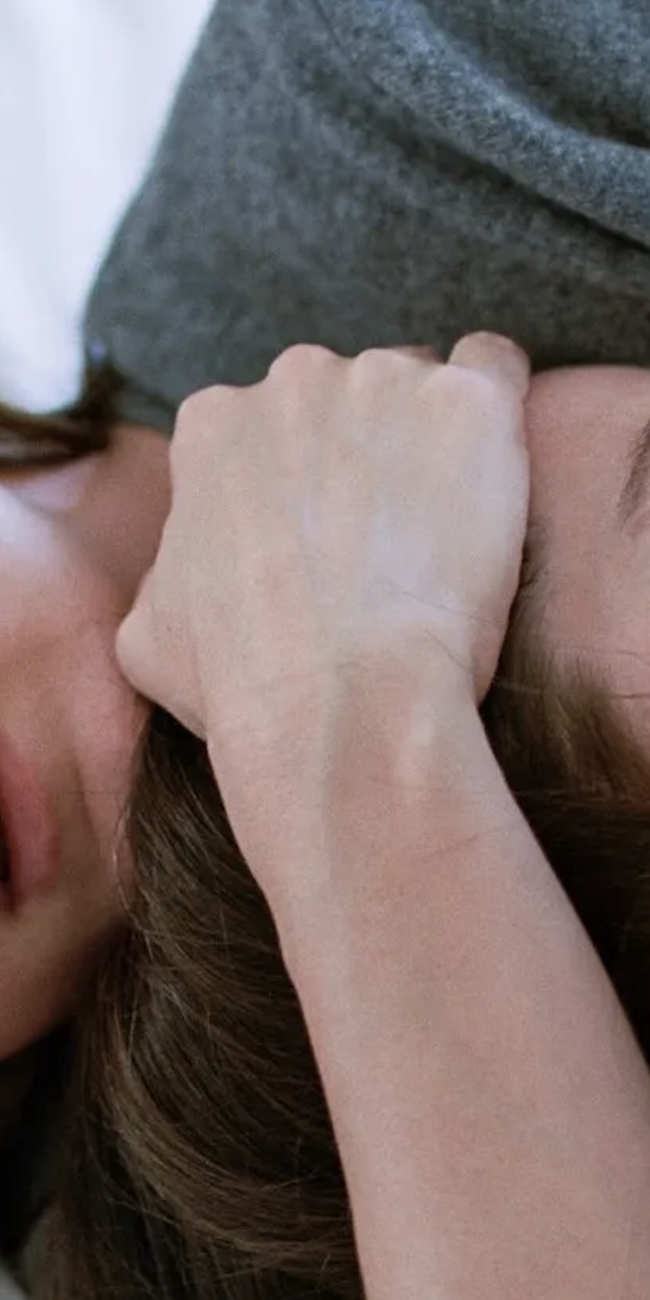(Trouble the Water is now available on home video. Buy the DVD at Amazon. Visit the film’s official website to watch a trailer.)
Too much good cinema has sprung from Hurricane Katrina to label one of these works the definitive statement on the tragedy—When the Levees Broke, Kamp Katrina, Low and Behold, just to name a few—but after watching Tia Lessin and Carl Deal’s Trouble the Water, it’s hard not to place this film at the top of the list. Just after the storm, Lessin and Deal headed to New Orleans to document the destruction in some way, shape, or form. When they innocently began interviewing Kimberly Roberts and her husband Scott one afternoon, they found their film’s true calling. Not only did Roberts come equipped with her own dramatic handicam footage shot before, during, and after the storm; she also happened to be a subject that great films are made of, a defiant, spirited survivor with the inner strength to rise above a monstrous act of nature and an indifferent government and bring hope to an otherwise hopeless situation.
For the film’s first half, Lessin and Deal interweave post-storm footage of Kimberly, her husband Scott, and their new friend Brian, with footage shot by Roberts as she wandered through her neighborhood in order to preserve the world as it looked before the storm blew into town (little did she know just how fiercely it would strike). They structure their film this way not to tease viewers, but simply to add greater narrative tension to the story. Though we all know what happened, we’ve never seen it presented this intimately before, from the inside-out. As difficult as some of it is to watch, we know, thanks to Lessin and Deal’s structure, that Kimberly is going to survive. This doesn’t settle our mind, but it helps to ease it in some tiny way.
What might very well be the most surprising thing about Trouble the Water is that the footage of the storm itself isn’t the film’s main selling point. The post-hurricane story of Kimberly, Scott, and Brian, as they try to turn this infinite negative into a positive, is what gives it a rare sense of import. Granted, it’s a maddening journey, as these three wanderers bump into wall after wall of neglect (conscious and unconscious) and rejection (direct and indirect). If it weren’t for Kimberly’s presence, this might all be too excruciating to bear, but her unwavering spirit —fueled by a life of brutal hardship and, it cannot be denied, by the camera itself—makes it somehow seem okay. This unexpected, seemingly impossible optimism, is what lifts Trouble the Water into another realm altogether.
 To their credit, Lessin and Deal aren’t here to grandstand or preach (for this is a moment in time that might actually warrant that behavior). While they indulge their anger by contrasting scenes of the ravaged community with interview footage of government authorities in order to show just how clueless and removed they really are, they never go all the way overboard. Perhaps most importantly, Lessin and Deal appear to understand something that pushier, less accomplished documentarians don’t: it is far more affecting to show than to tell. When Kimberly’s cousin’s wife is moved to tears in stating that she would never let her son die for a country that doesn’t care whether he lives or dies, we understand the pain for we feel it. One wonders if Roberts’ spirit transported itself into Lessin and Deal themselves. It seems rather silly to be obnoxious and angry when the person who has the most right to be obnoxious and angry retains a hopeful, happy, and positive spirit.
To their credit, Lessin and Deal aren’t here to grandstand or preach (for this is a moment in time that might actually warrant that behavior). While they indulge their anger by contrasting scenes of the ravaged community with interview footage of government authorities in order to show just how clueless and removed they really are, they never go all the way overboard. Perhaps most importantly, Lessin and Deal appear to understand something that pushier, less accomplished documentarians don’t: it is far more affecting to show than to tell. When Kimberly’s cousin’s wife is moved to tears in stating that she would never let her son die for a country that doesn’t care whether he lives or dies, we understand the pain for we feel it. One wonders if Roberts’ spirit transported itself into Lessin and Deal themselves. It seems rather silly to be obnoxious and angry when the person who has the most right to be obnoxious and angry retains a hopeful, happy, and positive spirit.
Throughout the film, Roberts talks about her passion for creative expression and her dreams of becoming a popular rapper (her pseudonym is Black Kold Madina), and while her sharp wit and natural flair for the camera hint at this talent, it explodes towards the end when she fulfills that promise and then some. Over a backing track played through a boombox in her bedroom, Roberts performs her song “Amazing,” in which she tells her life story in furious detail. The result is one of the more spine-tingling moments of recent memory, an inexplicably powerful lesson in human defiance, in the power of language itself. Trouble the Water should have been a hopeless, deflating, excruciating experience, but through sheer force and will power, Ms. Roberts wouldn’t let that happen.
— Michael Tully











